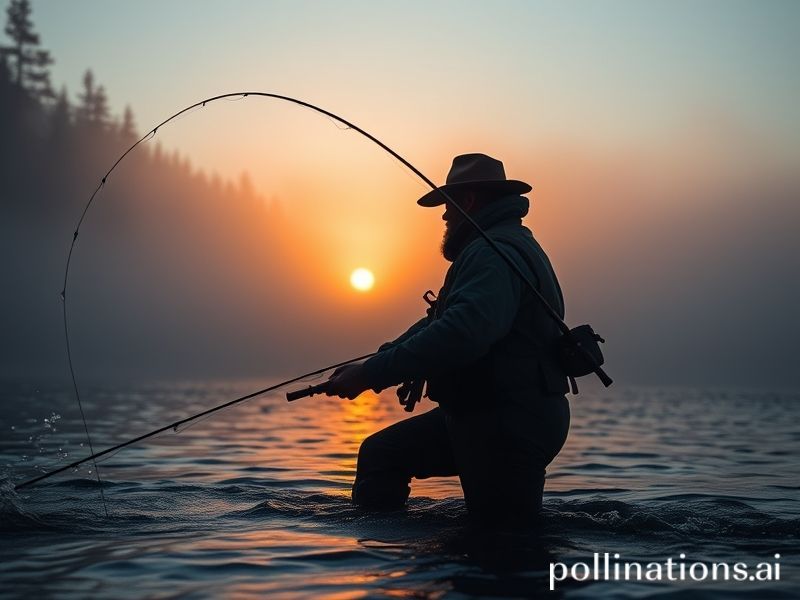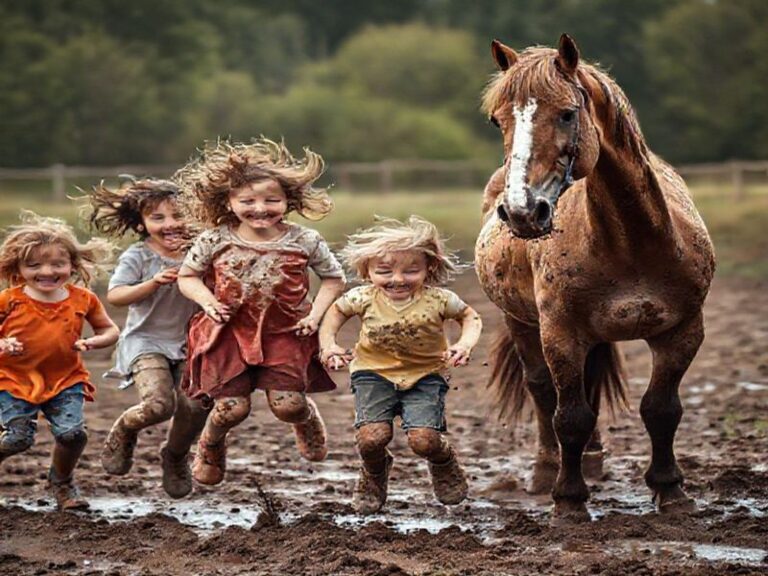Frozen Assets: How the Global Coldwater Cast Turned Icy Misery into a Multinational Micro-Economy
By the time the sun finally rose over Reykjavik last Tuesday, the Coldwater Cast had already been streaming for nine hours. Somewhere in a dimly lit Oslo basement, “MackerelMikkel” was teaching 23,000 viewers how to debone a fish with a butter knife; in Valparaíso, Chile, an ex-banker named Camila was narrating her descent into artisanal kelp farming to a chat window full of Brazilians arguing about tax policy. Welcome to the latest piece of evidence that humanity, when given fiber-optic cable and existential dread, will always choose to watch strangers do mildly stressful things in very cold water.
The Coldwater Cast—part endurance performance, part low-budget travelogue, part aquatic group therapy—began life as a Scandinavian joke. During the pandemic, Norwegian public broadcaster NRK experimented with “slow TV” featuring salmon fishing. The twist was that anyone could log in via webcam and join the frigid stream, ostensibly to “co-hydrate.” The project was meant to last one weekend. It is now in its 47th consecutive month, has migrated across platforms, and counts followers from 114 countries, including a surprisingly militant contingent from landlocked Uzbekistan who insist the Caspian Sea counts.
Economists at the OECD, never ones to miss a trend they can overthink, have labeled Coldwater Cast an “ambient resilience economy.” Translation: bored, freezing people are monetizing other bored, freezing people. Micro-payments flow in kroner, yen, and Dogecoin for digital mittens, waterproof emojis, and the right to rename someone’s fishing boat “S.S. Tax Evasion.” The World Bank quietly estimates the gross submerged product at roughly the GDP of Malta, although half of that is probably laundered through NFTs of particularly photogenic cod.
Geopolitically, the Cast is turning into the aquatic version of the Arctic Council. Russia’s sanctioned streamers, unable to secure Western payment processors, now barter tins of caviar for Icelandic hot-spring access codes. Meanwhile, Chinese regulators allow state-approved “Coldwater Cast Lite,” where the water temperature never drops below 18 °C and the fish are encouraged to display socialist values. Viewers in Lagos watch both feeds simultaneously on cracked smartphones, placing bets on which superpower’s trout looks happier. Spoiler: the trout never looks happy.
Climate scientists, those relentless killjoys, point out that the streams inadvertently document glacial retreat in real time. A glacier that appeared behind a Finnish caster last March has since retreated 120 meters, prompting the UN to propose the Cast as an official monitoring tool. The casters responded by holding a 24-hour “melt-a-thon,” selling digital ice cubes whose proceeds allegedly go to re-freezing the Arctic. Receipts have not been forthcoming, but the cubes now trade on crypto exchanges under the ticker ICYHOT.
Human-rights lawyers fret about darker currents. Belarusian dissidents use the platform to transmit coded messages—three splashes means “police at the door,” two means “send lawyers, guns, and money.” The regime, never subtle, has retaliated with its own channel featuring a loyalist in an ushanka reading tractor manuals while standing waist-deep in a frozen drainage ditch. Viewer numbers are classified, but rumors suggest even the ditch has applied for asylum.
Through it all, the casters themselves remain stoically bemused. “We used to worry about frostbite,” shrugs Sven, a part-time dentist from Tromsø whose subscriber count rivals CNN’s prime-time average. “Now we worry about brand integration for antifungal cream.” His dentist salary now constitutes 12% of household income; the rest arrives via viewers who pay extra to watch him extract his own wisdom tooth on an ice floe. The chat scrolls by in seven alphabets, unified by one emoji: 🥶.
And so the planet spins, algorithms churn, and somewhere south of Tasmania a former tax attorney kayaks among leopard seals while narrating corporate bankruptcy law to an audience that includes three inquisitive penguins and 40,000 insomniac humans. The Coldwater Cast, like everything else these days, is part coping mechanism, part marketplace, part slow-motion shipwreck. We tune in because the water is cold, the world is colder, and at least the fish don’t pretend to have a five-year plan.







